Introduction: A Warm Embrace in a Mug
Imagine this: It's a cold winter evening, you're wrapped in a cozy blanket, and the only thing missing is that perfect cup of hot chocolate with cheese. Sounds unconventional? Don’t dismiss it yet! This fusion of rich chocolate and savory cheese isn't just a modern gimmick—it draws from centuries-old culinary traditions. In Mexico, queso fresco has been melted into chocolate beverages since colonial times. We'll explore how this unlikely pairing creates a balanced flavor experience and provide actionable guidance for recreating it authentically.
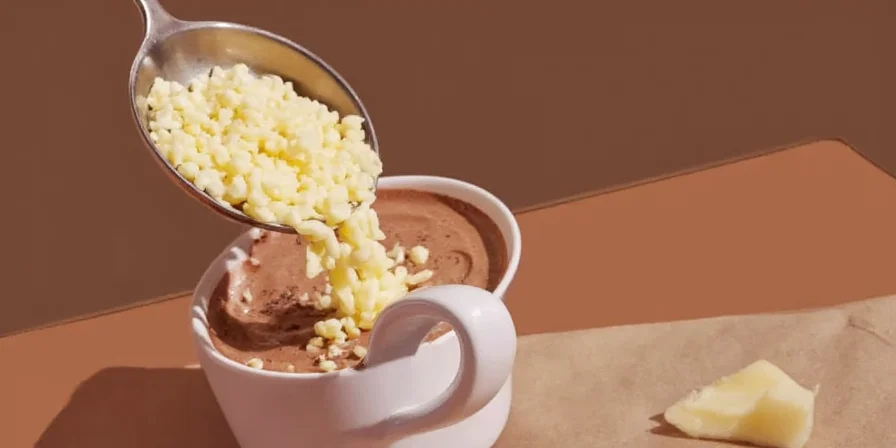
A steaming mug of hot chocolate topped with melted cheese — rooted in cultural tradition
Table of Contents
- Why Cheese + Chocolate Works
- Best Cheeses for Authentic Flavor
- Precision Preparation Method
- Culturally-Inspired Variations
- The Flavor Science Explained
- Frequently Asked Questions
Why Cheese + Chocolate Works
The magic lies in balancing taste dimensions. Chocolate delivers sweetness and bitterness, while cheese contributes umami and saltiness—a dynamic seen globally in pairings like Spanish chocolate with manchego. This isn't merely novelty; it leverages fundamental taste science where contrasting elements enhance complexity. Historical context matters: In Oaxacan cuisine, queso fresco has been stirred into mole and chocolate drinks for generations, proving this harmony transcends trends.
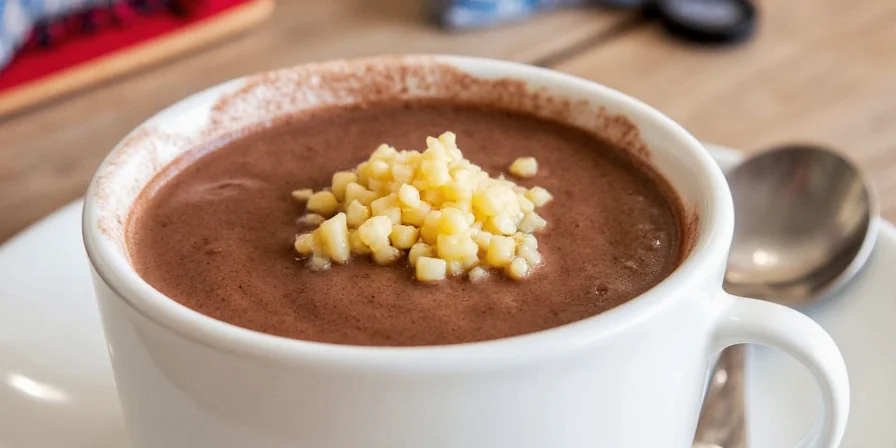
How cultural traditions inform modern flavor balancing principles
Best Cheeses for Authentic Flavor
Select cheeses that melt cleanly without separating. Authentic preparations prioritize texture integration over bold flavors:
- Queso Fresco: The traditional choice—mild, crumbly, and dissolves smoothly into warm chocolate
- Brie: Modern alternative with creamy texture; best with milk chocolate
- Manchego: Spanish sheep's milk cheese offering nutty notes for dark chocolate pairings
- Paneer: Indian cottage cheese alternative that holds shape while absorbing flavors
| Cheese Type | Melting Behavior | Cultural Origin |
|---|---|---|
| Queso Fresco | Dissolves completely | Mexico |
| Brie | Creamy integration | France |
| Manchego | Partial melt, nutty notes | Spain |
| Paneer | Holds shape, absorbs flavors | India |
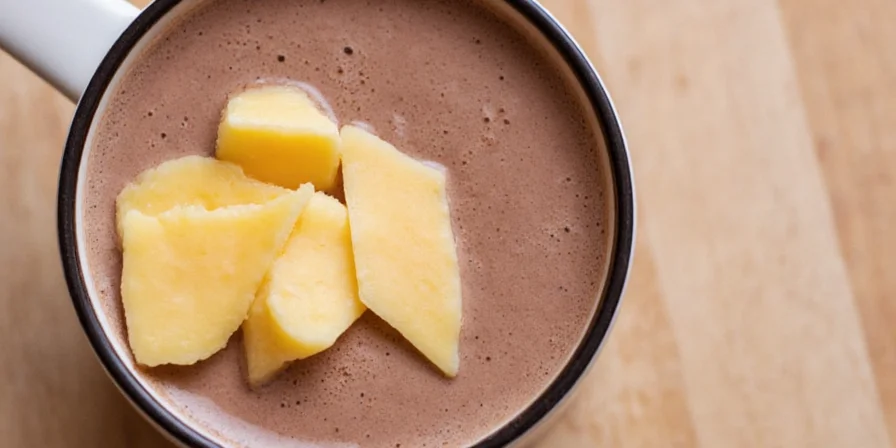
Traditional preparation using queso fresco in Mexican hot chocolate
Precision Preparation Method
Authentic results require technique refinement. Follow these temperature-controlled steps:
- Temperature control: Heat chocolate mixture to 160°F (71°C)—never boiling—to prevent cheese from seizing
- Cheese integration: Crumble queso fresco directly into mug; avoid pre-melting
- Stirring technique: Circular motion for 30 seconds until cheese dissolves completely
- Texture check: Final consistency should coat the back of a spoon without lumps
- Adjustment window: Correct texture within 2 minutes before cooling sets the mixture
Culturally-Inspired Variations
Move beyond generic spices by honoring regional interpretations:
- Mexican Style: Ancho chili powder + cinnamon (traditional in Oaxaca)
- Spanish Twist: Smoked paprika + orange zest (inspired by chocolate con churros)
- Indian Fusion: Cardamom + saffron threads (mimics traditional masala chai techniques)
- Middle Eastern: Rosewater + pistachio garnish (reflecting Persian dessert traditions)
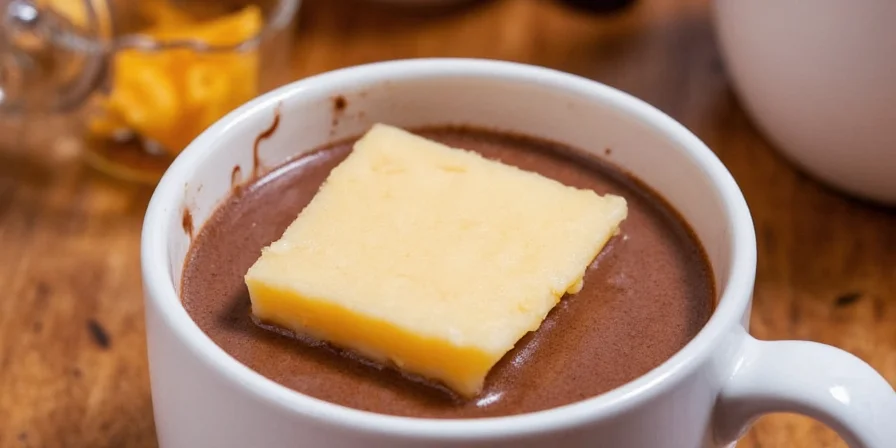
Authentic Mexican preparation using ancho chili and cinnamon
The Flavor Science Explained
This pairing succeeds due to molecular synergy. Theobromine in chocolate stimulates sensory receptors, while cheese proteins bind with cocoa compounds to create new flavor compounds during melting. Crucially, the fat in cheese carries chocolate's volatile aromatics, enhancing perceived richness without added sugar. Temperature control is essential—above 165°F (74°C), cheese proteins denature and cause separation, destroying the emulsion that creates smooth texture.
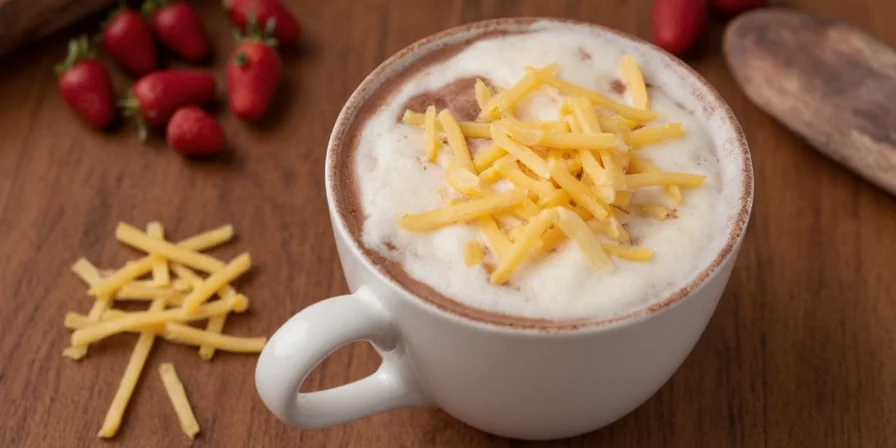
Molecular interaction between cheese proteins and cocoa compounds
Frequently Asked Questions
Does this work with any chocolate?
Dark chocolate (60-70% cacao) provides optimal balance. Higher cocoa content overwhelms subtle cheese notes, while milk chocolate's sweetness competes with savory elements. For traditional Mexican preparation, use tablet chocolate like Ibarra.
How do I prevent grainy texture?
Maintain temperatures below 165°F (74°C) and use fresh queso fresco. Graininess occurs when cheese proteins coagulate from overheating—always remove mixture from heat before adding cheese.
Can I use processed cheese?
No. Processed cheeses contain emulsifiers that create artificial smoothness but mask authentic flavor development. Traditional preparations rely on natural cheese chemistry for proper texture integration.
Is this suitable for dairy-free diets?
Traditional versions require dairy, but cultural adaptations exist. In Southeast Asia, tofu is sometimes used in chocolate beverages for similar textural effects, though flavor profiles differ significantly.
Conclusion: Beyond the Trend
Hot chocolate with cheese represents more than viral novelty—it embodies global culinary wisdom where opposites create harmony. By understanding its cultural roots and precise preparation requirements, you transform a simple beverage into an authentic multisensory experience. This technique works because it adheres to universal flavor principles validated across centuries of culinary tradition, not fleeting food fads. When executed correctly, it delivers complexity that satisfies both curiosity and palate.
For optimal results, prioritize temperature control and authentic ingredients over quantity. Start with traditional queso fresco portions (15g per 8oz) and adjust based on texture response. This approach respects the craft while allowing personal interpretation within proven parameters.

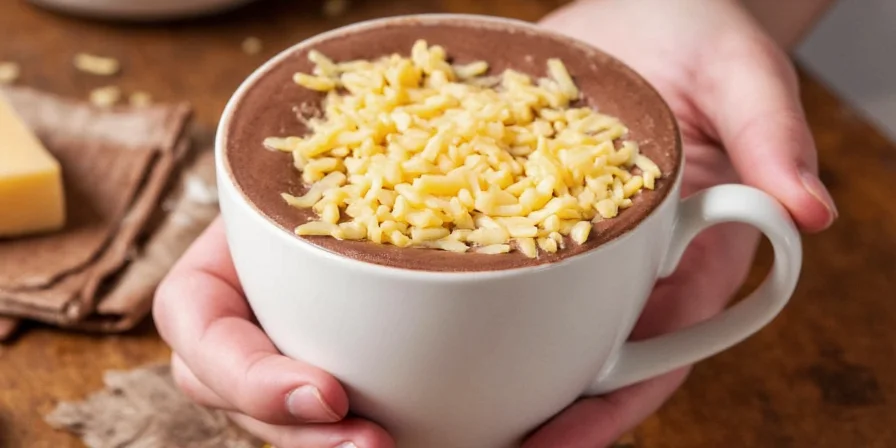









 浙公网安备
33010002000092号
浙公网安备
33010002000092号 浙B2-20120091-4
浙B2-20120091-4